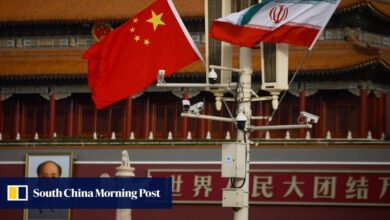Opinion | After Britain, will China be next to join CPTPP free trade pact?


The CPTPP, which also includes Australia, Canada and Japan, is the successor to the Trans-Pacific Partnership, cobbled together after the US withdrew from the pact in 2017. Britain is the first non-founding member and the first European country to join the free trade agreement, and its inclusion pushes the bloc’s combined gross domestic product to US$15 trillion.
Yet, the agreement is not expected to meaningfully contribute to the British economy or bolster the country’s relative economic weight in the global economy, which is projected to fall from 3.3 per cent in 2021 to 2.7 per cent by 2050. The pact is forecast to boost the UK economy by only £2 billion a year in the long run, or less than 0.07 per cent of the country’s total economic output. A UK government estimate earlier predicted that it would add only 0.08 per cent of GDP over 10 years.
China is not only the world’s second-largest economy but also its second-biggest importer of goods. Studies show that Beijing’s inclusion could significantly boost the exports of CPTPP countries to China. Importantly, a large part of these economic gains would be made through new trade creation.
The CPTPP accession protocol encourages aspirant countries to engage informally and formally with all treaty members vis-a-vis their interest in joining. China is proactively increasing its engagement with members and said it has aligned its policies and legislation with the set criteria, such as introducing pilot free trade zones. It has also pledged to do more to foster a more open, fair and competitive environment for multinational companies.
Source link



